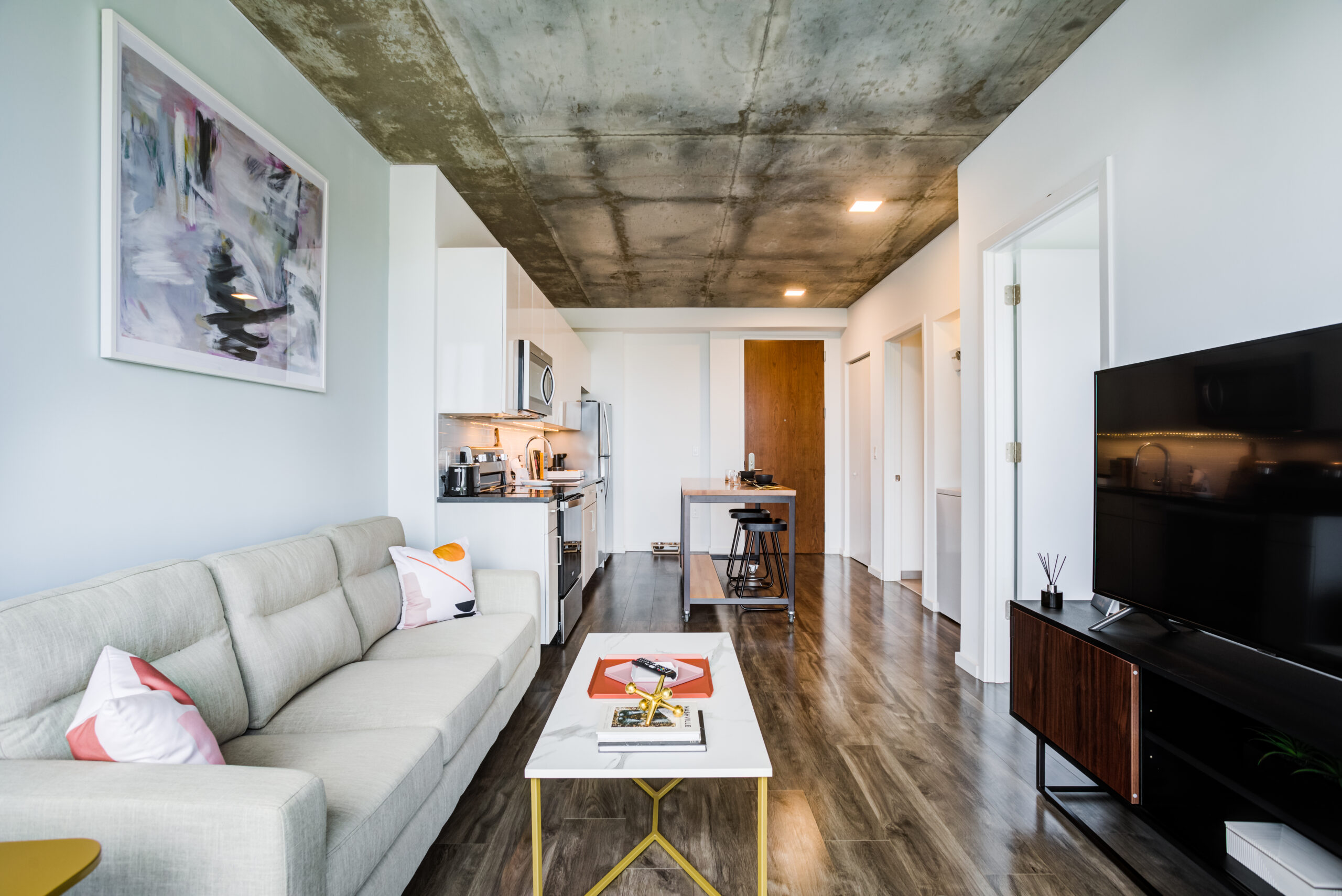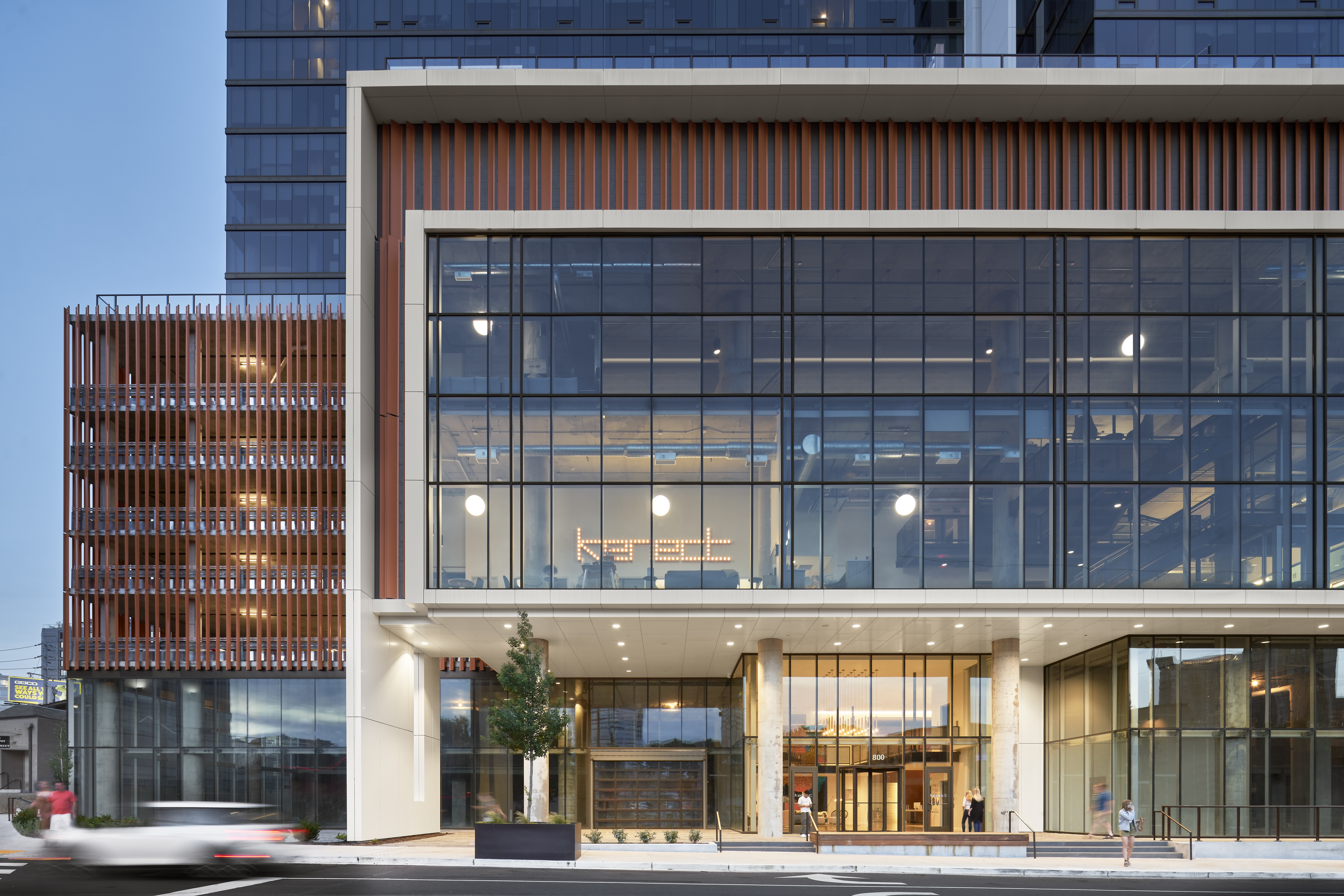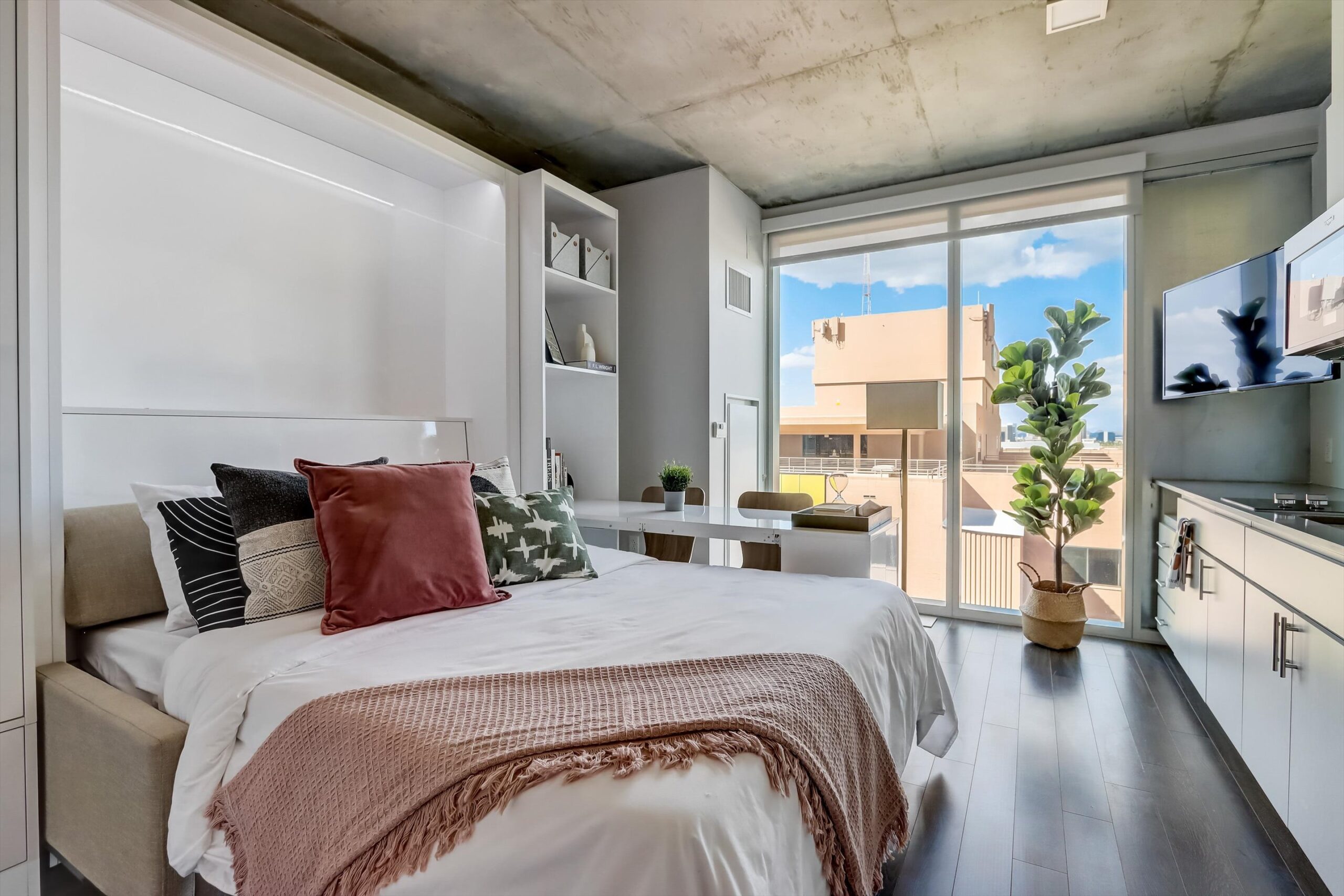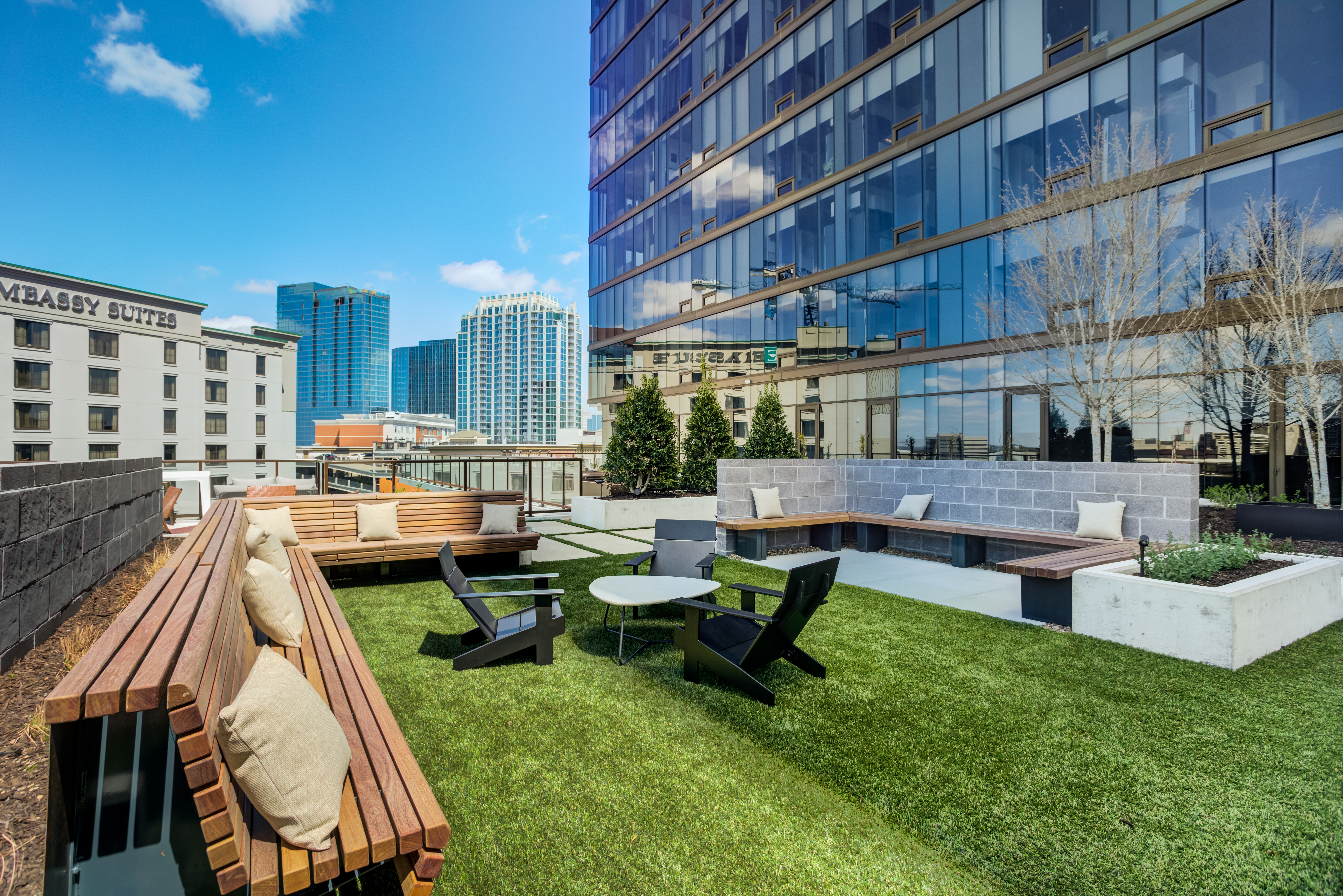Finding the right rental can be challenging, especially when you need flexibility. Whether you’re relocating for work, exploring a new city or in between permanent housing, a short-term lease offers a convenient solution without the commitment of a long-term contract. With options ranging from month-to-month rentals to six-month agreements, these leases provide the freedom to move on your terms while often including furnished options and bundled utilities.
But is a short-term lease the right fit for your lifestyle? In this guide, we’ll explore the benefits, costs and key factors to consider before signing, helping you decide if this flexible rental option aligns with your needs.
What Is a Short-Term Lease?
A short-term lease is a rental agreement that lasts for less than 12 months, providing flexibility for those who don’t want to commit to a long-term contract. While traditional leases typically span a year or more, short-term options provide renters with a temporary living solution without the long-term obligation.
Short-term leases can vary in length, with common durations including three-month, six-month or nine-month terms, as well as month-to-month agreements that automatically renew unless either party decides to terminate. These leases are ideal for individuals who need temporary housing — whether due to work relocation, academic schedules or personal transitions.
While short-term rentals offer flexibility, they often come at a higher cost than standard leases. Landlords frequently charge a premium for shorter agreements since they must find new tenants more frequently, leading to additional administrative costs and potential vacancies.
Types of Short-Term Leases
Furnished Short-Term Leases: These include essential furniture and appliances, making them an ideal choice for business travelers, students or digital nomads who need a convenient, move-in-ready space.ected, convenient and ready for whatever the future holds.
Fixed-Term Short Leases: These have a predetermined end date, such as a three- or six-month lease, and do not automatically renew. They’re great for renters who know exactly how long they need housing.
Month-to-Month Leases: These renew automatically each month unless either the tenant or landlord provides notice to terminate. They provide maximum flexibility but may come with a fluctuating rent price.

Advantages of Short-Term Leases
Flexibility With Move-In and Move-Out Dates
A short-term lease allows you to adjust your housing situation without being locked into a long commitment. Whether you’re relocating for work, exploring a new city or in between permanent housing, you can move in and out on your schedule. Many short-term leases operate on a month-to-month basis, so you’re not stuck paying rent for months if your plans change.
Convenient Temporary Housing Solution
Short-term rentals are ideal for temporary situations, such as home renovations, job relocations or extended travel. If you’re moving for a short-term job assignment or waiting to close on a new home, these leases provide a comfortable and practical alternative to hotels. Many short-term rentals also come fully furnished, making it easier to settle in without the hassle of buying and moving furniture.
Adaptable for Changing Lifestyles
For freelancers, remote workers or digital nomads, a short-term lease offers the freedom to relocate when needed. Families in transition — whether moving for work or waiting for a permanent home — can also benefit from the ease of a temporary rental. Additionally, short-term leases often include utilities and internet, simplifying budgeting and reducing the setup process when moving in.
Test a Location Before Committing
If you’re unsure about where you want to live long-term, a short-term lease lets you experience a new neighborhood, city or even a different style of living before making a final decision. This is especially useful for those relocating for work or school, as it allows time to explore an area before signing a long-term lease or purchasing a home.
Faster Move-In Process
Short-term rentals often involve less paperwork and fewer upfront costs compared to long-term leases. Many come furnished, and utilities are frequently included, making the transition seamless. If you need housing on short notice, a short-term lease can offer a quick and convenient move-in solution without the delays of setting up furniture and utilities or waiting for an extended approval process.
Choosing the Right Short-Term Lease
Finding the right short-term rental comes down to location, budget, lease terms and included amenities. Whether you need a furnished apartment or flexible rental terms, comparing your options ensures a hassle-free experience.
Key Factors To Consider
- Lease Duration and Flexibility: Some short-term leases offer month-to-month agreements, while others require a three- or six-month commitment. Make sure the lease aligns with your timeline and allows for extensions or early termination if needed.
- Location and Accessibility: Proximity to work, public transportation, grocery stores and entertainment can make a significant difference in your living experience. If you’re new to a city, consider an area that provides easy access to essentials.
- Pricing and Hidden Costs: Beyond rent, factor in security deposits, application fees, parking costs and whether utilities are included. Some short-term rentals have higher upfront costs due to their flexibility and convenience.
- Furnished vs. Unfurnished Options: Many short-term apartments come furnished, but not all. If a unit is unfurnished, consider the costs of renting or purchasing furniture for a temporary stay.
Amenities and Included Services: Features like Wi-Fi, gym access, laundry facilities and coworking spaces can add value to a rental. Some properties provide added conveniences like on-site coworking spaces and community events, helping residents feel more at home.

The Cost Aspect of Short-Term Leases
Short-term leases offer flexibility but often come with higher costs than long-term agreements. Whether you’re considering a six-month lease, a month-to-month rental or a furnished short-term apartment, it’s important to understand the financial impact before committing.
Common Cost Considerations Across Short-Term Leases
Regardless of lease length, short-term rentals typically involve:
- Higher monthly rent due to the landlord’s increased turnover risk.
- Bundled utilities and internet, which simplify costs but may raise the overall price.
- Cleaning fees, often charged separately for shorter stays.
Six-Month vs. Month-to-Month Rentals
While both options provide flexibility, their cost structures differ:
- Six-Month Leases: Generally offer lower rent than month-to-month rentals but may still carry a premium over a 12-month lease. They can provide better negotiation opportunities upon renewal.
- Month-to-Month Rentals: Typically come with higher rent rates and automatic renewal, requiring at least 30 days’ notice to vacate. Landlords also have more freedom to adjust rent based on market conditions.
Budgeting for Furnished Short-Term Apartments
Furnished rentals offer convenience but often come with unique pricing structures. When planning your budget, consider:
- Higher Monthly Rent: Furnished apartments generally cost more than unfurnished units due to the added value of included furniture and appliances.
- Additional Fees and Deposits: Some landlords charge extra security deposits for furnished units to cover potential damages to furniture and appliances.
- Lower Upfront Costs: Since furniture, appliances and basic household items are provided, tenants avoid the expense and hassle of purchasing, transporting and setting up these essentials.
Rental prices vary widely based on location. According to Zillow, as of March 2025, the average U.S. rent is $2,055, with cities like Miami averaging $3,100 and Phoenix around $1,960. While short-term leases provide flexibility, they require careful budgeting to manage increased costs.
Understanding the Terms of a Short-Term Lease Agreement
Before signing a short-term lease, it’s crucial to understand the fine print to avoid unexpected fees or restrictions. While these agreements offer flexibility, they can also come with specific conditions regarding rent, utilities, security deposits and early termination policies. Reviewing the key clauses in your lease can help ensure a smooth rental experience.
Key Clauses To Review in a Short-Term Lease Agreement
Before signing a short-term lease, carefully review the following terms to avoid unexpected costs or restrictions:
- Rental Period: Specifies the lease’s start and end dates, including renewal or extension terms.
- Payment Terms: Outlines the rent amount, due date, late fees and acceptable payment methods
- Security Deposit: Details the required deposit amount, conditions under which funds may be withheld and the timeline for its return after the lease ends
- Utilities and Services: Identifies which utilities (electricity, water, internet, etc.) are included in rent and which are tenant responsibilities.
- Maintenance and Repairs: Clarifies whether the landlord or tenant is responsible for upkeep and how repairs are handled.
- Property Condition: Documents the unit’s state at move-in to prevent disputes over damage charges at the end of the lease.
- Lease Termination and Notice Periods: Specifies how much advance notice is required to end the lease and any penalties for early termination.
Understanding these clauses helps ensure your lease aligns with your needs and prevents any surprises during your stay.
Tips for Negotiating a Short-Term Lease
While short-term leases generally come with set terms, there is often room for negotiation, especially if you’re a strong candidate. Here are a few strategies to secure better terms:
- Emphasize Your Reliability: Highlight your stable income, strong rental history and ability to pay rent on time.
- Know the Market: Research local rental rates to determine whether you can negotiate a lower rent or better lease terms.
- Offer a Slightly Longer Commitment: Some landlords may lower the rent or offer better terms for a six-month lease rather than a month-to-month arrangement.
- Negotiate Utilities or Fees: Ask if certain costs, such as Wi-Fi or parking, can be included in the rent.
- Consider Seasonal Timing: Landlords may be more flexible during off-peak rental seasons when demand is lower.
- Be Willing to Compromise: Showing flexibility with move-in dates, minor maintenance responsibilities or security deposits may help secure a better deal.
- Discuss Renewal Terms in Advance: If you anticipate needing an extension, try to lock in favorable renewal conditions upfront.

Is a Short-Term Lease Right for You?
A short-term lease can be the perfect solution for those seeking flexibility, whether you’re relocating for work, in between permanent housing or testing out a new city. With options ranging from three-month leases to month-to-month rentals, these agreements provide the freedom to move without the long-term commitment of a traditional lease.
However, short-term rentals often come at a premium, with higher monthly costs and potential fluctuations in rent. If stability, lower costs and the ability to personalize your living space are more important, a long-term lease may be a better fit. Carefully weigh your priorities — if flexibility and convenience outweigh the added expense, a short-term lease could be the right choice for your current lifestyle.
At Kenect, we offer fully furnished and flexible lease options designed to fit your needs. Whether you need a short-term stay or a space that adapts to your changing schedule, Kenect provides modern apartments with premium amenities like coworking spaces, a rooftop pool and a built-in social community. Explore our short-term rental options today and find the perfect place to call home — on your terms.



